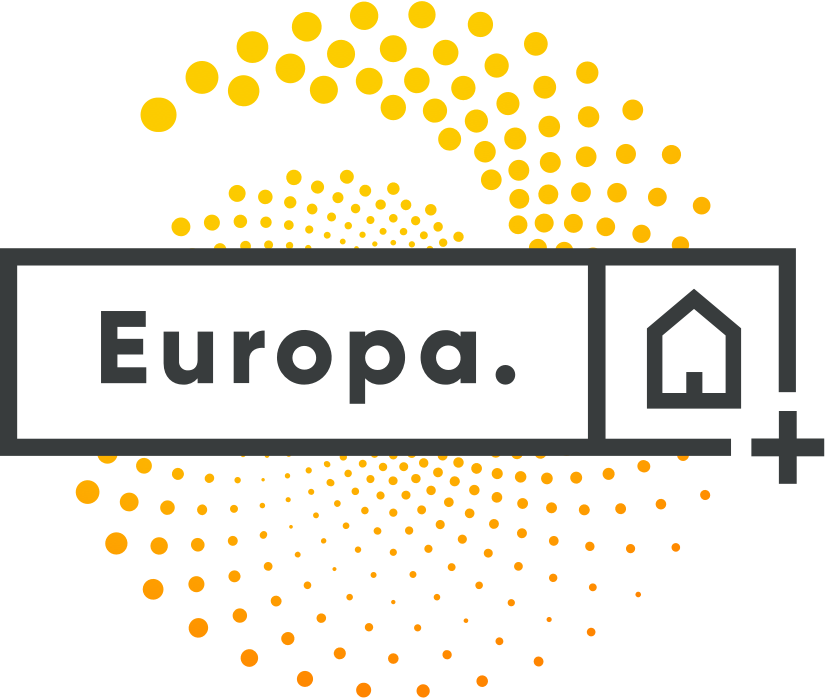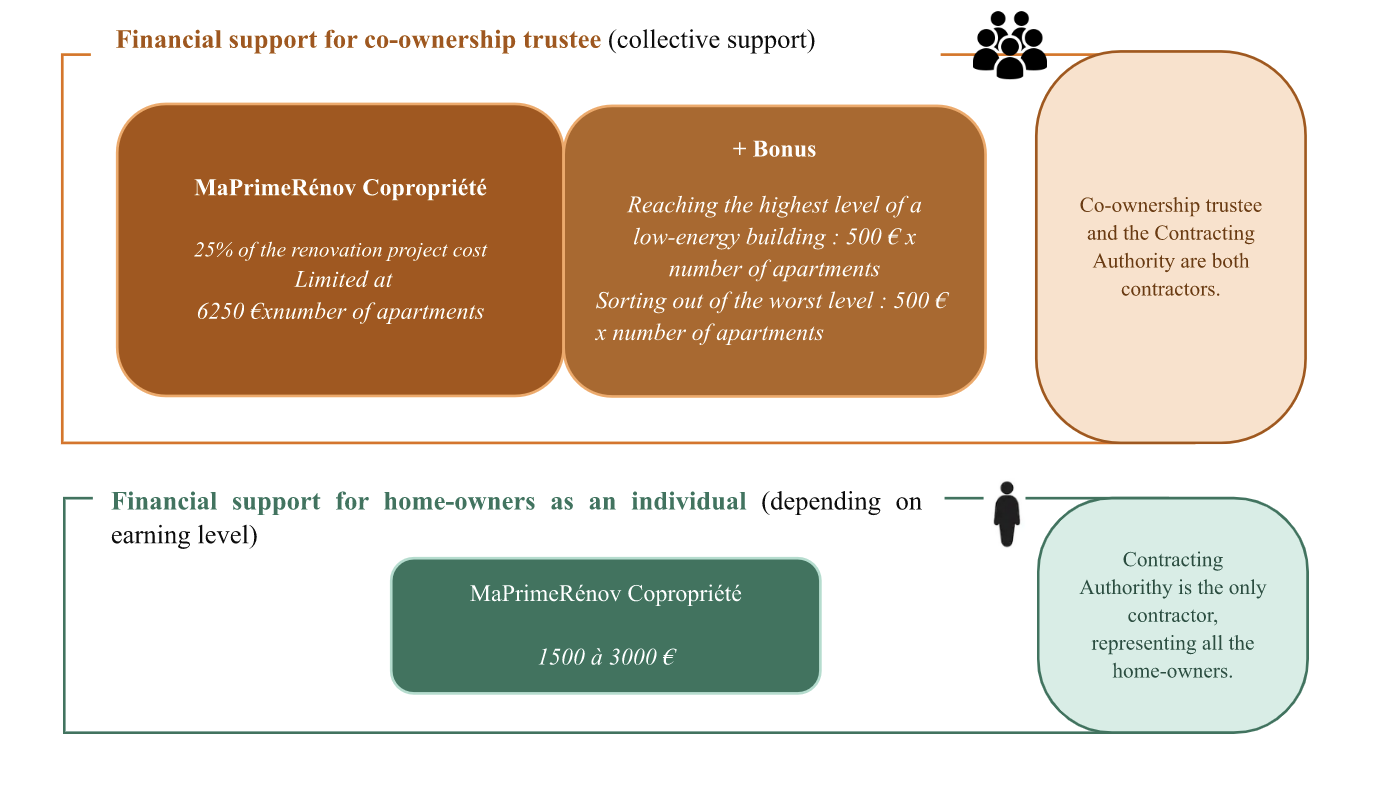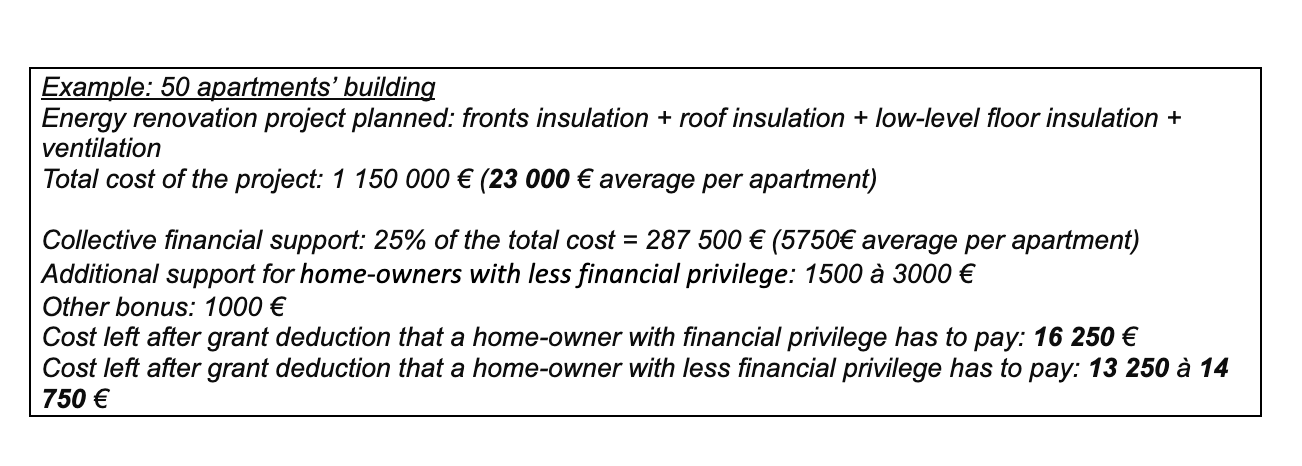So, why is it difficult to get home-owners into an energy renovation building project? It seems that the « making decision process » could be the main reason. In France, each step of a renovation journey has to be voted by all the home-owners during a general meeting. It may take between two and five months from the early phase of a renovation project to the vote related to the renovation works.
To ensure the majority, information and communication towards home-owners are needed before each vote for raising awareness. As the residents living in the building are very different (lessors, tenants, young or old people, various living standards), this point is crucial to understand mid and long-term advantages provided to everyone by an energy renovation project. Co-ownership trustee and co-ownership council are the key, due to their strategic position, to reach this « one voice » goal by connecting with home-owners.
It happens sometimes that some of the areas that AGEDEN is in charge of, are very specific: as they mainly host ski resorts, big part of residential buildings includes secondary residences only dedicated for holidays. Informing and raising awareness are both more complicated to organize in this case, as home-owners are away the most part of the year. That is also true when it comes to convincing them to vote for a renovation project: financial aids created by the French government are mainly for principal residences. That is why some local authorities launched their own programs to encourage energy renovation projects for secondary residences in residential buildings.
That is the role of AGEDEN to help home-owners and co-ownership trustees for easing the energy renovation journey since the beginning of the process. By joining the Europa programme as the French pilot, the non-profit organization can do so.
Besides, implementing the Europa One-Stop-Shop project is one of the best experiences to improve AGEDEN both practices and tools linked to energy efficiency, such as the Energy Efficiency Subscription.
Following below, more details about how AGEDEN support home-owners during an energy renovation journey.
STEP 1 – Inform and gather all home-owners by:
- Visiting the residential building with members of the co-ownership trustee and the co-ownership council
- Making a report with points that could be improved in the building for more energy efficiency by renovating
- Sharing this report during a meeting for all inhabitants and stakeholders that might be concerned by the renovation project, answering to their first questions, and managing to clear potential barriers
STEP 2 – Support the co-ownership trustee in order to identify the construction companies needed for the renovation project by:
- Sharing tools and practices to select the construction companies: list of qualified companies, sample of a requirements specification brief, etc.
- Analyzing estimates with impartiality : level of quality, technical aspects and costs are discussed and compared
STEP 3 – Get the majority at the general assembly by:
- Reviewing once more estimates to make sure they fit financial programme requirements and the workability is ensured
- Assessing the amount of financial grants based on estimates and personal details of each contractor : home-owner, lessor, earning level
- Hosting a meeting to inform home-owners about which financial programs, both collective and individual, they can pretend to, renovation works suggestions and cost estimated associated, and steps to follow to go ahead in the energy renovation journey
As a summary, AGEDEN is the main, neutral and independent partner for supporting home-owners in residential buildings in an energy renovation journey since the early phases to the renovation works.




